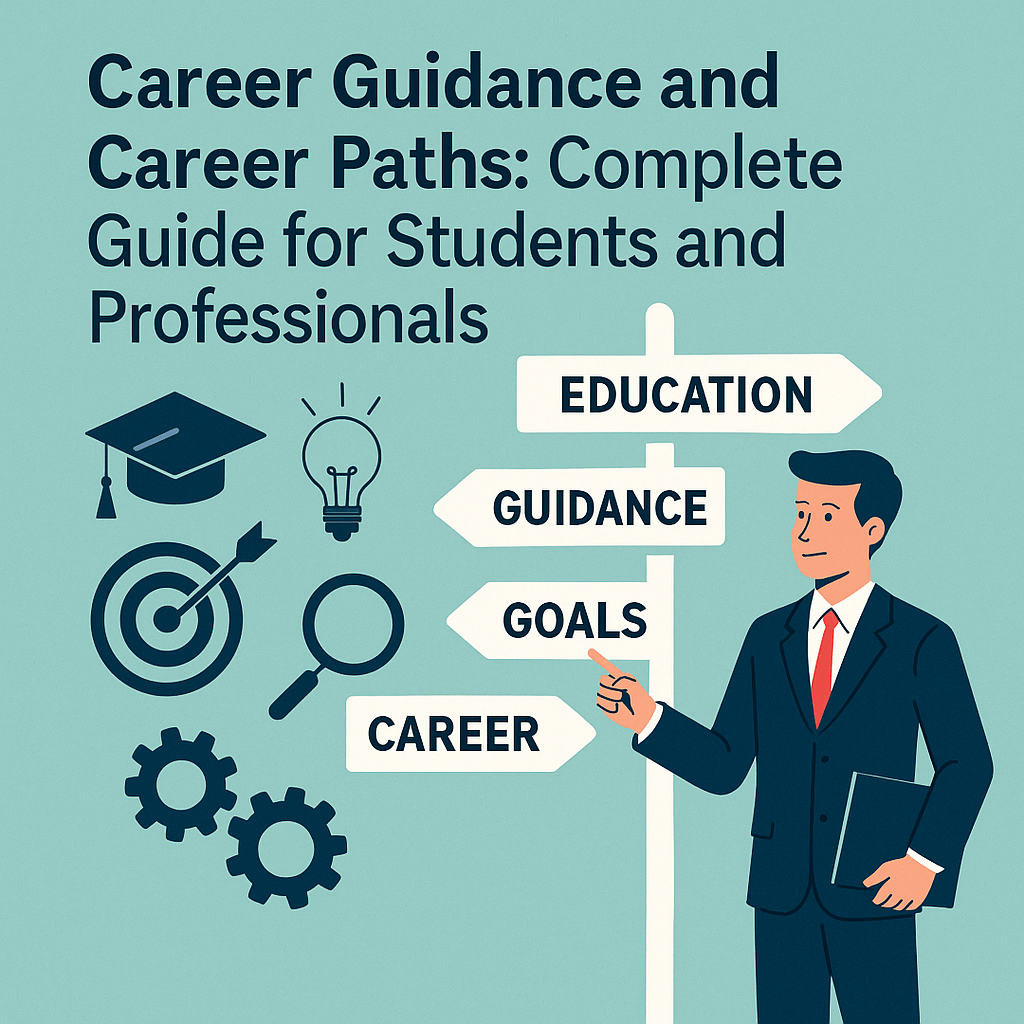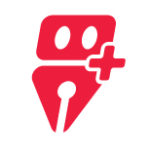Introduction
Choosing the right career path is one of the most significant decisions in life. It shapes not only professional growth but also personal fulfilment and long-term stability. However, the process is rarely straightforward. With the evolving job market, technological disruption, and global economic shifts, students and professionals alike often face confusion about where to start and how to progress.
Career guidance provides clarity in this journey. It helps individuals understand their interests, strengths, and opportunities in order to make informed decisions. This article explains what career guidance means, the importance of structured planning, and how individuals can identify and pursue career paths that suit them best.
Key Takeaway: Career guidance helps align individual strengths and interests with career opportunities, offering direction in a competitive and dynamic job market.
Read:- Bachelor of Mass Media
What Is Career Guidance?
Career guidance is the process of helping individuals identify, plan, and manage their careers through professional advice, assessments, and mentoring. It can include psychometric testing, one-to-one counselling, or structured training sessions. The goal is to enable informed choices about education, training, and employment.
It is not only about selecting a job after graduation. Instead, career guidance is an ongoing process, supporting individuals at different life stages—students choosing academic streams, graduates preparing for their first job, or professionals considering a career change.
Key Takeaway: Career guidance is not limited to early education; it supports decision-making throughout one’s professional journey.
Why Career Guidance Matters Today
Modern workplaces are highly dynamic. Careers that once promised lifelong employment have evolved or disappeared due to automation, digitalisation, and changing business needs. For example, industries like artificial intelligence, green energy, and digital marketing have created new roles that did not exist a decade ago.
Without guidance, students may choose careers based on parental pressure, peer influence, or outdated advice. Similarly, professionals may remain in unfulfilling jobs simply because they lack awareness of alternatives. Career guidance addresses these challenges by offering insights into future-ready skills, industry growth areas, and personal strengths.
Key Takeaway: Career guidance is essential in today’s unpredictable job market, helping individuals avoid misaligned decisions and stay future-ready.
Read:- Dietician Course
Stages of Career Guidance
Career guidance can be divided into clear stages, each serving a different purpose.
-
Self-Assessment
-
Identifying skills, interests, values, and personality traits.
-
Tools such as aptitude tests, personality inventories, and interest surveys are used.
-
-
Exploring Opportunities
-
Researching career options in various industries.
-
Analysing growth potential, salary trends, and required qualifications.
-
-
Decision-Making
-
Comparing different opportunities against personal aspirations.
-
Setting short-term and long-term career goals.
-
-
Action Plan
-
Outlining steps such as required education, certifications, and internships.
-
Creating timelines to track progress.
-
-
Continuous Development
-
Updating skills with training or certifications.
-
Adjusting plans as industries evolve.
-
Key Takeaway: Career guidance is not a single event but a structured process involving self-awareness, research, decision-making, and continuous learning.
Factors to Consider When Choosing a Career Path
1. Interests and Passions
Enjoyment in daily work can lead to long-term satisfaction. For example, someone who enjoys creative problem-solving may pursue design, coding, or entrepreneurship.
2. Skills and Strengths
Practical evaluation of one’s abilities is important. Analytical thinkers may excel in finance or data science, while empathetic individuals may thrive in healthcare or education.
3. Industry Trends
Looking at the future of work is crucial. Roles in AI, cloud computing, digital healthcare, and sustainable energy are projected to grow rapidly.
4. Education and Training Requirements
Some fields demand advanced degrees (medicine, law), while others value skill-based learning (digital marketing, IT).
5. Work-Life Balance and Values
For many professionals, workplace culture, flexibility, and ethical alignment matter as much as salary.
Key Takeaway: Choosing a career path requires balancing personal strengths with industry demands and long-term values.
Popular Career Paths for Students and Professionals
1. Technology Careers
-
Software Development
-
Cybersecurity
-
Data Science
-
Cloud Engineering
-
Artificial Intelligence Research
2. Healthcare Careers
-
Nursing
-
Physiotherapy
-
Medical Research
-
Healthcare Administration
3. Business and Finance Careers
-
Investment Banking
-
Chartered Accountancy
-
Financial Planning
-
Human Resource Management
4. Creative Careers
-
Graphic Design
-
Film and Media
-
Content Writing
-
Digital Marketing
5. Emerging Careers
-
Renewable Energy Specialist
-
Sustainability Consultant
-
UX/UI Design
-
Blockchain Developer
Key Takeaway: Career paths are expanding across industries, with both traditional and emerging opportunities available for different skill sets.
Read:- IELTS Exam Qualification
Role of Career Counsellors
Career counsellors act as guides who provide structured support. They:
-
Conduct aptitude and personality tests.
-
Offer insights into job market trends.
-
Help set realistic goals.
-
Suggest training, certifications, or internships.
-
Provide mentorship for interviews and job applications.
Their role is especially valuable for students uncertain about subject choices or professionals considering a career switch.
Key Takeaway: Career counsellors provide professional insights and personalised strategies, making the career planning journey smoother.
Career Guidance for Students
Students face decisions that shape their entire professional future. Choosing academic streams after secondary school, deciding on higher education, or selecting vocational training are all critical points. Career guidance for students includes:
-
Understanding subject strengths before selecting a stream.
-
Aligning higher education with future career goals.
-
Identifying extracurricular skills (coding, design, writing) that may lead to professions.
-
Preparing for competitive exams where necessary.
Key Takeaway: Early career guidance empowers students to make confident academic and professional choices.
Career Guidance for Working Professionals
Even after securing a job, career guidance remains relevant. Professionals often face crossroads where they must choose between growth, stability, or change. Key areas include:
-
Switching industries for better opportunities.
-
Pursuing higher education or certifications.
-
Learning leadership and managerial skills.
-
Adapting to remote and hybrid work models.
Key Takeaway: For professionals, career guidance supports long-term growth, skill adaptation, and informed career shifts.
Building a Career Development Plan
A structured career development plan helps track progress and stay accountable.
-
Set Goals – Define what you want to achieve in the next 1, 5, and 10 years.
-
Acquire Skills – Learn through courses, training, or workshops.
-
Gain Experience – Internships, projects, or freelance work add practical exposure.
-
Networking – Building professional connections creates opportunities.
-
Monitor Progress – Regularly review and adjust goals.
Key Takeaway: A career plan turns ambition into actionable steps and measurable growth.
The Impact of Technology on Career Paths
Artificial intelligence, automation, and remote work have changed how careers evolve. Some jobs are shrinking, while others are rapidly expanding.
For example:
-
Manual data entry jobs are declining.
-
AI-related careers are growing.
-
Remote work has created global opportunities for freelancers and consultants.
Key Takeaway: Technology reshapes industries, making adaptability and continuous skill development essential.
Career Guidance Resources
-
Online Platforms: LinkedIn, Coursera, and edX for skill-building.
-
Government Services: Many countries offer free or subsidised career counselling.
-
Career Fairs and Seminars: Provide networking opportunities and exposure to industries.
-
Mentorship Programs: Offer personalised learning from industry experts.
Key Takeaway: A wide range of resources—online and offline—can support individuals in making career choices.
Common Mistakes to Avoid in Career Planning
-
Choosing based solely on salary.
-
Ignoring personal interests and values.
-
Not keeping skills updated.
-
Overlooking networking and industry exposure.
-
Delaying decisions without proper research.
Key Takeaway: Avoiding these mistakes helps build a fulfilling and sustainable career.
Conclusion
Career guidance is more than advice—it is a structured process that combines self-awareness, research, planning, and mentorship. Whether you are a student making your first academic decision or a professional seeking growth, proper guidance can create clarity and confidence.
In a constantly changing world, adaptability and informed decisions are key. Career paths are not fixed but flexible, allowing individuals to align their work with personal aspirations and global opportunities.




Comments
0 comments